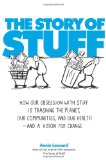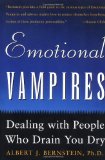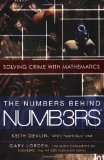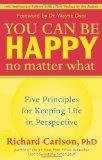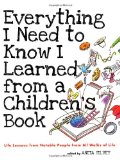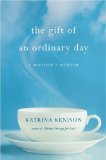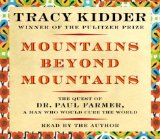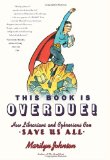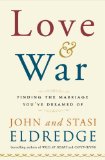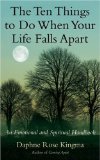 The Ten Things to Do When Your Life Falls Apart
The Ten Things to Do When Your Life Falls Apart
An Emotional and Spiritual Handbook
by Daphne Rose Kingma
New World Library, Novato, California, 2010. 214 pages.
Starred Review
This book brought wonderful encouragement to me right when I was losing my job at the library.
A lot of books about dealing with crisis don’t move me. I know this stuff. I’ve been dealing with my husband leaving me for almost five years now, and it’s been an enormous crisis, and I’m coming out the other side.
But as I faced the new crisis of losing the job which had been some of my consolation in the divorce, it was a good time to think again about what I knew and how I should face this new crisis, along with the ongoing crisis of divorce.
Daphne Rose Kingma has a way of putting the principles that raises a cry of recognition. Not in the sense that I know this and don’t need to go over it again, but instead like a lovely song of truth that I want to keep singing.
Just this evening, as I’m writing this review, I’ve been struggling with a desire to call up my husband and say, “Hey, why don’t we just call the whole thing off?” Even though I know that would be pursuing him again — and I really need to let him go, after all this time. There’s a part of me that still doesn’t believe it really happened. And maybe that’s the same part of me that really wants to be back in a librarian job. (Hmmm. Come to think of it, maybe this was all brought on by a new assignment in my new job of particular boredom today.)
So, for my own sake, I’d like to list The Ten Things to Do When Your Life Falls Apart, and give some quotations from each one, to give you a feel for the helpful encouragement in this book.
The first step deals with the raw emotion of what’s happening to you: “Cry Your Heart Out.”
“We live in a culture that’s afraid of grieving; we don’t know how to cry. When our lives fall apart in one way or another, we usually try to take control of things and solve them, forget them, or deny them — rather than experience them, accept them, or see the meaning they may hold for us. That’s because underlying many of our responses to difficulty is the unstated assumption that we should be able to engage in life, liberty, and the unbridled pursuit of happiness without ever having to grieve — over anything. It’s almost as if we believe that pain, suffering, and challenge are bad and should never be a part of our path.
“The truth is that pain is one of our greatest teachers, hurt can be a birth, and our sufferings are the portals to change. This being true, we need to know how to grieve, to mourn, to shed our tears, because grief is the cure for the pain of loss. Tears are the medicine of grieving.
“When life is hard, when you’re in a crisis, you should cry not because you’re weak but because crying holds the power of healing. Tears, in fact, are the vehicle for transformation. When you cry, your loss moves through you to the point of exit. What was holding you up and eating you up, what was stuck inside your body, gets released and moves outside your body. Your physical structure is quite literally cleansed and, like a blackboard sponged clean, is available to receive the imprint of whatever wants to come next. That’s why, when you have cried, you will be reborn, free to begin again.”
The second Thing to Do is to Face Your Defaults — examine what’s your normal response.
“Your defaults are whatever you do when you don’t know how to cope or what to do next…. Defaults are habitual behaviors, and they’re not always the best way to cope. New — and especially, difficult — circumstances howl out for new solutions: improvisation, imagination, ingenuity. But when we’re intimidated, scared, and overwhelmed, most of us resort to our default behaviors because, well, we always have, and there they are.”
“A crisis is always a chance not only to scrape away the film of your defaults but to see that life is inviting you to develop, to move in the direction of your own creative aliveness, to become more of who you are. In this way, pain is the initiator of great change, and crisis is definitely an opportunity. Indeed, it is an unsolicited chance to become more of yourself, more than you ever have been.”
The third step is to Do Something Different.
“When a crisis occurs, it’s asking not only that we scramble and find some tools to deal with the vexing problems at hand, but also that we grow. Tough times, pain, illness, radically changed circumstances, walls that cave in, rugs that get pulled out from under us, floods that inundate, fires that turn our worlds to heaps of ashes — these ‘inspire’ us to do something different, to become more, better, other than we have been. Indeed, these disasters are all the ways the cosmos has of saying: we’ve been wanting you to do something different. You didn’t get it the first time — or the first hundred times — so, we’ve provided yet another opportunity, a ‘discount special’ for This Life Only, for you to make the changes your soul has been crying out for.”
You won’t be surprised by the fourth step. You knew it had to be in there somewhere: Let Go.
“We’re not used to letting go. We’re used to hanging on for dear life. We hang on for lots of reasons: because something is familiar; because the past is a known commodity and the future is a question mark; because we lack imagination and can’t conceive of a future better than the past we’ve had; because blankies (no matter how ragged and trashed they are) and relationships (no matter how complete they already are or inappropriate they have become) are a comfort to us. We hang on because we’ve been taught that persistence is good and we should never give up. Or we’re simply afraid of the free fall, afraid of coming alive as ourselves….
“Letting go, on the other hand, asks you to believe that somewhere across the Big Tent of Life there will be another trapeze bar that you can take hold of after you’ve let go of this one. It’s an act of terror and freedom, of trust and faith that when you let go, you will find something new, better, different.”
“We need to let go because whatever we’re holding on to is keeping us attached to the problem. Hanging on is fear; letting go is hope. Holding on is believing that there’s only a past; letting go is knowing that there’s a future. In letting go, we surrender the weight of our burdens and find the lightness of being with which to begin once again. We open a door for the intervention of the divine….
“New lands await, freedom abounds. Opportunities hide like rain in the clouds waiting for the moment to reveal themselves. The white canvas, crying out for paint, is alive with possibility. The freed man is free to fall in love again; the freed woman to claim her strength, find her true work, begin again at a deeper and more satisfying level.”
Next, you need to Remember Who You’ve Always Been.
“In the midst of the current frazzling fray, it’s probably easy to feel as if somehow everything’s your fault — not because it is, of course, but simply because you’re overwhelmed. You feel as if you ought to have the stamina, the resources, the savvy, or the moxie to get yourself out of or through all this — whatever your particular “this” is — and you don’t. You feel as if you should have been able to prevent the crisis from happening in the first place — but you didn’t. You may feel utterly hopeless, helpless, and defeated as all hell breaks loose in your life, like you have nothing to work with, nothing to count on right now. You may wake up in the morning (or at three in the morning) feeling stripped of everything you ever were, every talent and strength you ever had.
“But that’s simply not true. When the tectonic plates of the world are shifting beneath your feet, it is hard to remember that there’s a continuous thread of genius, of power, of responsiveness that runs through your life, that, since the beginning, you’ve had certain qualities to bring to the task at hand — no matter how fraught it may be with challenge and frustration.
“Who you are now is who you’ve always been. You didn’t wake up today as somebody else. You are a single, talented, rare, unrepeatable human being. There is something at your core that’s unique to you, that always has been and always will be. This is the throughline of your personal essence, the chiming chord of your unique existence. It has carried you through every day of the year, every year of your life, and it is what will sustain you now. The you who has always been you has been preparing for this moment. The power that is in you will rise to this occasion. You are equal to it with your gifts.”
“Crisis is a challenge to express your strengths at their highest arc, which is when you also are at your most beautiful.”
The sixth Thing to Do When Your Life Falls Apart is to Persist.
“Persistence is the spiritual grace that allows you to continue to act with optimism even when you feel trapped in the pit of hell. It is the steadfast, continual, simple — and at time excruciatingly difficult — practice of trudging forward until the difficult present you’re scared will go on forever is replaced by a future that has a new color scheme.”
“When you decide to persist, it’s not because you’re an idiot, not because you don’t know from the inside or from looking around just how dire your current circumstances are. It’s because in the face of perhaps thousands of reasons to be discouraged, you choose to be bold, to carry on, to keep on duking it out, no matter how grizzly, tedious, intractable, or seemingly hopeless the present situation may seem. The power of persistence is required especially when we’re dealing with intense, emotionally devastating circumstances or bunches of hugely difficult things that have stacked up all at once.”
“In this sense, persistence is visionary. Expectant. A sacred journey resplendent with hope. When you persist, you know, on a visceral level, that you are enacting your part in the invisible contract between you and the cosmos. Instead of feeling powerless, you feel alive. Instead of feeling hopeless, you have a sense that you’re on the path to somewhere. Instead of feeling like a victim, you feel like a person of action; in your deep self you know that this choice for action will one day be rewarded with a response.”
The seventh step in dealing with crisis is to Integrate Your Loss.
“In order to get through the crisis you’re in, you will have to accept what has happened and then integrate it into the fabric of your life. Your integration of the content and the meaning of the crisis will be the sign, the hallmark, that you are moving through this challenge.”
“Crisis cajoles us to move toward integration, to expand, to accept more. This process of acceptance is not incidental to a challenging time; it is one of its intended purposes. That is because, while our human nature prefers distinction, separation, and confusion, our spiritual nature seeks wholeness, inclusion, and union. Since we are ultimately spiritual in nature, life keeps pointing us in the direction of this growth. Like the kaleidoscope, it keeps offering us the pieces that we must put together.
“Integration can arrive in an instant, when, through the free fall of surrender, you finally accept each one of the parts of your existence, even the ugly ones, even the irritating ones, even the ones you want to negate, destroy, and disown. Or it can come more slowly, as day by day, episode by episode, you gradually come to accept what has happened. When you do, you become whole. You become whole not because you have finally gotten rid of the painful or offensive item, not because you have escaped, but because you have embraced it. This is the process of integration in ourselves, in others, in the world. When we have achieved full integration, we know that there is only wholeness, which is enlightenment itself.
“Moving toward integration, to the space in yourself where you can see the wholeness of life, gives you a sense of hope. It also brings great peace because you know that your life, even in this crisis, and your soul, for all eternity, are nestled in the blanket of wholeness where everything, even this very difficult time, has its perfect place.”
The eighth Thing to Do When Your Life Falls Apart is to Live Simply.
“Living simply is paring away — stuff, obligations, expectations, people. It’s removing all the glut and rubble from your life, making space in your house, your heart, your brain, and your life for exactly and only what you need.”
“It’s good to live simply when things are going well, but when life is difficult, it’s essential. That’s because every object, habit, movement, conversation, undertaking, responsibility, and reaction takes energy. The more people, circumstances, widgets, emails, objects, people, and tasks you’re dealing with, the less energy you have….
“You will need to live simply through this crisis or else you won’t have enough energy to get through it. Once you have lived through it, you will understand more about what’s really important in life. In fact, maybe that’s why it showed up in the first place.”
Ninth in the list, if you want to get through this crisis, you will have to Go Where the Love Is.
“When we’re beset by crisis, we also begin to recognize our own vulnerability. We see that in one realm or another we, ourselves, could use some assistance. And so, from the chalice of our own need, we start reaching out for help. That’s because once we’ve been taken apart by life, we are more humble, more open, more willing to both give and receive. We take bigger chances. We speak up. We reveal ourselves. We ask. We break down. We accept comfort. Words. A blanket. A meal. In time, we realize that something amazing has happened: that the more we reach out to others, the less lonely we feel ourselves. Somehow, even in the midst of our chaos, we are actually feeling loved. And the beautiful thing is that, the more love we need, suddenly the more we have to give.
“Learning to love, loving more, that’s the bottom line of what a crisis is really all about. Through it, we are being asked to expand beyond the inordinate focus on ourselves — our obsession with what we need, want, and desire — to notice what we can share, how we can serve and be of help to one another. In short, we are being asked to enlarge the circle of our love. Of course, it’s not always easy to do this. It may be unfamiliar. But when we do engage, when we see and hear and respond to one another, life starts to seem less scary. The more you get and give help, the more it seems that you will actually make it through your own unbelievably painful passage. You sense that there really is a new future. Even in the heartbreaking present you realize that you’re not alone. Not only that, but instead of wearing out your biceps holding up a thousand-pound iron defense shield in front of your heart, you can let down your guard, let down your hair, give up your pride, have a good cry, and, in gratitude, receive the love that’s coming toward you.”
“Dogs and cats can love you. Nature can love you. Music that sounds like you’ve heard it your whole life can love you. Art can love you. Beauty can love you. Whenever you deliver yourself to the experiences, sights, and sounds that make you feel loved, your experience will change. Your problems won’t be instantly solved, but in the arms of love, they will start to feel different. You will feel different. Instead of being in the foreground, your difficulties will recede into the background and your experience of your catastrophe will be transformed. That’s because Love is the highest vibration in the universe, and when you can feel it for even a nanosecond, everything else in your life will fall into its proper — and lesser — place.
“Of course, we don’t want love just in the abstract and in general. We want it to be personal and particular. That is, we want to feel and share love with real people in our lives. As you’re going through this extremely difficult time, therefore, lean on the people who love you. Run, walk, or hopscotch, take a train, a plane, or a bus, to the people who can give you some love. They are your family, your friends, your neighbors and colleagues. Sometimes they’re even strangers. Whoever they are, you’ll know them by how they make you feel. With them, you feel happy and whole. They are the people who recognize your spirit, who touch your sensivity, who nourish and enliven your body, who make you laugh, who “speak your language,” who share your interests, who ask how you’re doing, who call to see if you got the job, won the case, could get the car fixed for less than six thousand dollars.
“They are the ones who will say the words that will carry you through.”
Finally, the tenth thing Daphne Rose Kingma suggests for you to do when your life falls apart is to Live in the Light of the Spirit.
“At the beginning, your crisis may have seemed like an unbearable tragedy, an insult from the gods, something you couldn’t possibly live through. But perhaps as you have, in fact, found yourself moving through it a single day, a single breath at a time, you’ve started to get a sense of its deeper meaning. That’s because one of the gifts of crisis is that it always holds the seeds of seeing life and ourselves in a new and larger frame.
“The most profound gift of any crisis — its backbone, heart, and brain — is that it calls us to restructure ourselves along spiritual lines. But just as we don’t always operate from love in comfortable times, we don’t always live from an awareness of our spirits either.”
“Crisis is the crucible of expanded awareness because it gets us to respond to life in ways that are not patterned or familiar. It changes our energy, pushes our emotions around, taxes our bodies, gives us sleepless nights and heartache, so that our very physical structures and our psyches are vulnerable to information and perceptions that ordinarily elude us. When we are taken apart at the seams, we are vulnerable and permeable; our structures are out of sync enough, revised enough, flimsy enough to entertain some new information. We are open. We can be changed. And we do change.”
The book closes with a blessing:
“May the depth of your crisis remind you of who you really are. May your pain bring you into the light of awareness. May your journey through it give you hope. And when you have made it through the storm, may you feel great peace and joy.”
There you have it. The Ten Things to Do When Your Life Falls Apart. I’d like to wish that none of my readers would ever need it, but on the other hand Daphne Rose Kingma has reminded me of all the many ways that crisis brings growth. So instead I will wish that when crisis comes, you will be able to transcend it. And if you need some encouragement, I highly recommend this book.
Buy from Amazon.com
Find this review on Sonderbooks at: www.sonderbooks.com/Nonfiction/10_things.html
Disclosure: I am an Amazon Affiliate, and will earn a small percentage if you order a book on Amazon after clicking through from my site.
Source: This review is based on a library book from the Fairfax County Public Library.
